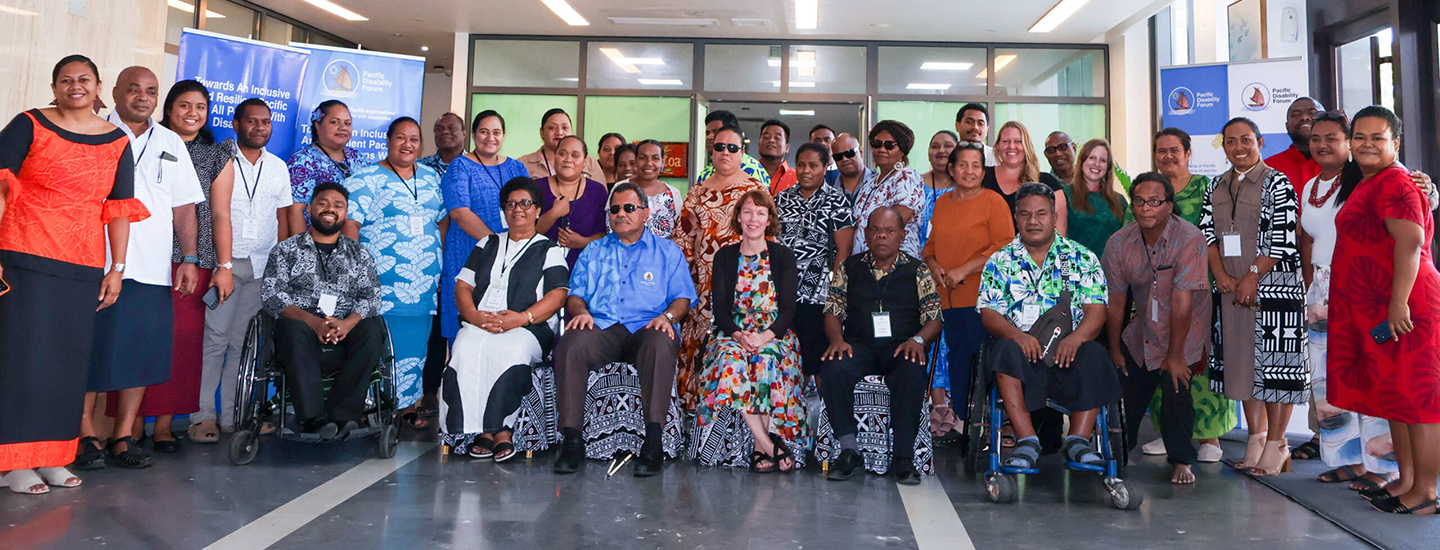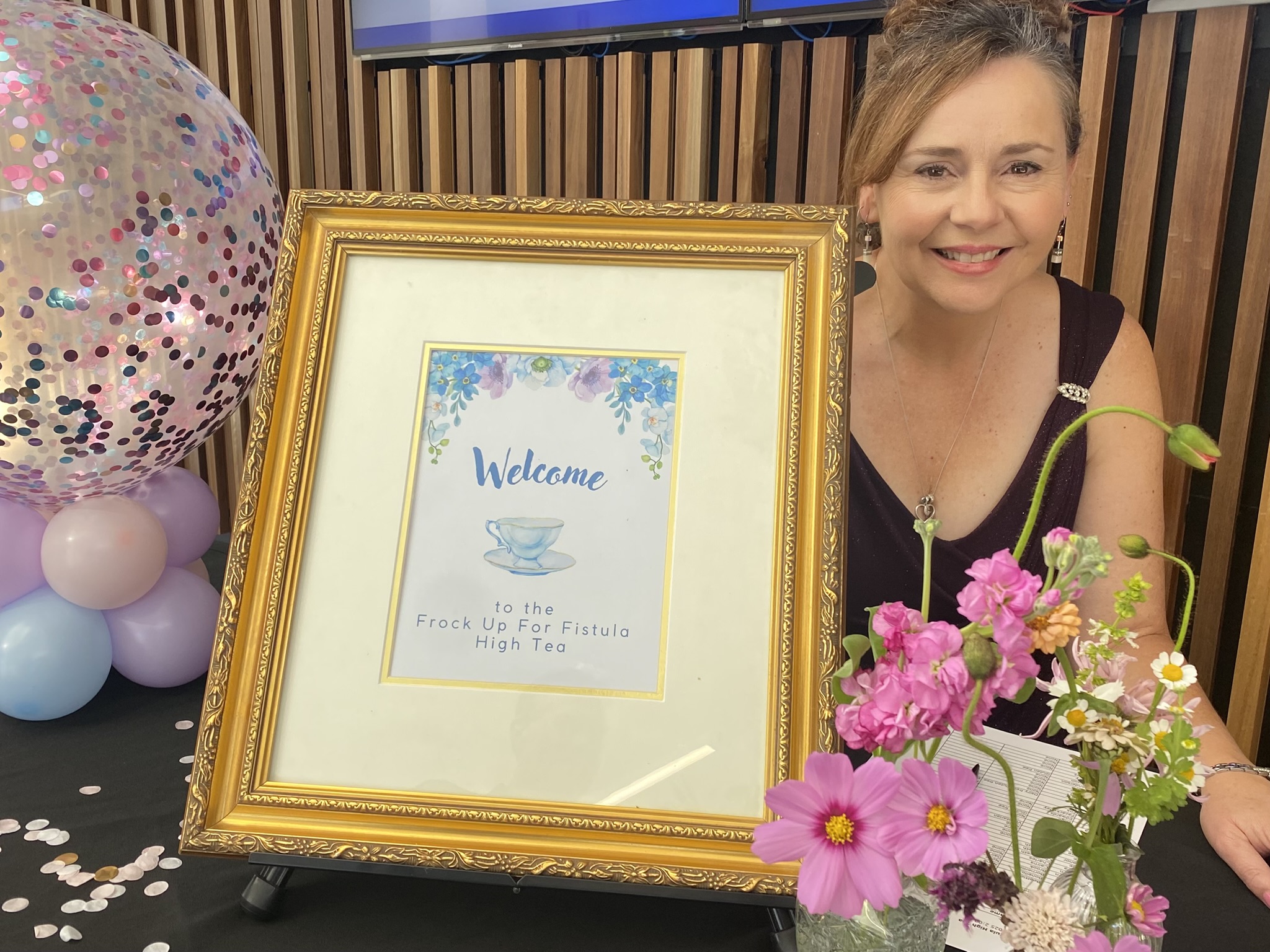From grassroots to global: catalysing community action for disability inclusive development
Stories | January 23, 2024
The Research for Development Impact (RDI) Network and La Trobe University held the 7th RDI Conference from 12-13 June, 2019. This conference explored the theme ‘Leadership for Inclusive Development’.
Hosted at La Trobe University’s Bundoora campus in Melbourne, the Conference explored what leadership is and what leadership does in the field of international development.
This Conference offered international development practitioners, academics, students, consultants and private sector representatives a unique opportunity to hear from thought leaders, interrogate emerging trends, share practice and explore collaboration across sectors.
CBM Disability Inclusion Advisor Karen Heinicke-Motsch was excited to speak at RDI about catalysing community action for Disability Inclusive Development (DID). DID is important because one billion of the world’s population – one out of every seven people on the planet – are women, men, girls, and boys with disabilities.
According to the United Nations (UN), at least 80 per cent of those billion people are estimated to live in developing countries. Here, people with disabilities make up a disproportionate percentage of the poorest sections of the community, which makes them an important group for development actors. But, despite their significance for development, many previous global efforts to reduce poverty – such as the Millennium Development Goals (MDGs) – have not explicitly addressed disability.
A commonly held perception is that DID interventions are financially unfeasible or too difficult to achieve, particularly in low-income countries. CBM challenges that perception. We ask you to consider: can governments afford to continue excluding women, men, girls and boys with disabilities? How can investment in inclusion benefit people with disabilities, their families and societies overall – and how can international cooperation support this inclusion?
The full inclusion and participation of people with disabilities in society is not just a development issue, it is also a human rights issue. The human rights obligations for the inclusion and full participation of people with disabilities have been set out clearly by the Convention on the Rights of Persons with Disabilities (CRPD).
During her presentation, Karen spoke about the different approaches to facilitating self-help and local advocacy groups, the importance of these groups to the disability movement, and why taking this approach is key to CBM’s approach to DID.
Karen spoke about the following approaches.
1. Multi-sectoral: focused on both supply and demand
CBID has grown from a single sector (Community-Based Rehabilitation [CBR], or health) to a multi-sectoral approach (CBID) that is implemented in over 90 countries around the world. With more countries aligning their disability laws with the CRPD and the world taking on the challenge of Agenda 2030 to leave no-one behind, this bottom-up approach to policy implementation is more important than ever.
2. Twin track: mainstream and specific (available, accessible, acceptable and quality)
CBID uses a twin-track approach in which people with disabilities, governments and community-based organisations work together to address barriers to meaningful participation and inclusion experienced by this group. At the same time, it ensures that specific services and supports required by the diverse population of people with disabilities are provided to enable full participation and the movement’s capacity to engage effectively with government and other development stakeholders. While the development process may begin from within the community itself, there is often a facilitator, or a group from outside the community, that initiates CBID.
3. Involved civil society and government
A common issue to be aware of is community programs that superficially imply a commitment to forming partnerships with local communities. Such programs may claim to be based on community development principles such as participation, social inclusion and empowerment. However, in practice, these groups can be mostly about diverting responsibility for social disadvantage and services from the state to individuals and civil society groups – or about minimising empowerment to a narrow definition. This approach conveniently avoids addressing systemic inequality.
4. Supporting a population to know its rights and understand what services and opportunities should be available to them
This knowledge and understanding can drive demand and contribute to improving application of legislation and effectiveness of systems.
We know from empirical evidence and examples from development projects that including people with disabilities in key sectors (e.g. health, education, and work and livelihood) from the outset can mean:
- Lower costs in the long run
- Positive returns for the economy and society overall.
To make the case for inclusive societies for people with disabilities, evidence needs to be gathered. This research is essential, yet it has consistently been lacking. We need research into the economic gains that come from including people with disabilities in international and national development programmes, and research into the costs of excluding people with disabilities.
David Bainbridge, CBM International Director, says that inclusion is a process. “It is a process that requires collaboration and participation of governments, international development organisations, persons with disabilities and their representative organisations. Disability inclusive health, education, work and livelihood can trigger economic gains for entire societies.”
CBM has undertaken an enquiry looking at the different ways Self-Help Groups (SHGs) are functioning (a sample from amongst partners in Asia and Africa) and what factors need to be in place to ensure they function well, are inclusive and sustainable. While the findings are not comprehensive and there is not one model for success, the learning from community development practitioners provide useful tips grounded in practitioner experience:
- For effective and successful functioning:
- Invest in group leadership
- Ensure the necessary support people are there to facilitate group development, e.g., a community development officer that assists people in learning to identify and engage with other local groups or authorities
- Operational guidelines to clarify roles, responsibilities and contribute to transparency
- Financial transparency by the SHG builds trust with donors and local authorities. Transparency demonstrates that the groups can effectively manage money and run programs.
- Disability inclusion within the SHG:
- Consider the group profile and participation rates
- Budget for inclusion and reasonable accommodation
- Keep those who still have difficulty attending represented and informed
- Consider the gatekeepers that may exclude, e.g., are financial contributions too high or too rigid?
- Consider who is not there and what is stopping them
- Fit into people’s routines
- Build groups as locally as possible.
- Sustainability of the groups to ensure they last long enough to help those they intend to:
- Link individual groups with other groups locally
- Build understanding of how local groups can get their concerns addressed at other levels (peak body DPOs, umbrella organisations)
- Plan for sustainability from the start and recognise it will look differently in different contexts
- Congruence of implementing organisation and SHG expectations.
To summarise, meaningful participation of people with disabilities won’t happen without intentional change in the attitude of people at all levels: people with disabilities themselves, family and local community, and organisations.
Learn more about how CBID operates in different country contexts.
Acknowledgements
CBM acknowledges and thanks contributions to this piece from La Trobe University: Leadership for Inclusive Development, RDI Conference 2019
https://www.cbm.org.au/stories/grassroots-to-global-catalysing-community-action-for-disability-inclusive-development
Related Stories

Growing Stronger Together: Supporting OPDs across the Pacific
CBM Australia is proud to partner with Pacific Disability Forum on the Growing Stronger...

Frock Up For Fistula: a High Tea of hope and healing
Something very special happened this Mother’s Day weekend. CBM Ambassadors Lyn Wake and Glenys...

Empowering Change: Jamuna’s Journey to Climate-Smart Farming in Nepal
In Nepal, agriculture is the backbone of the economy,...
